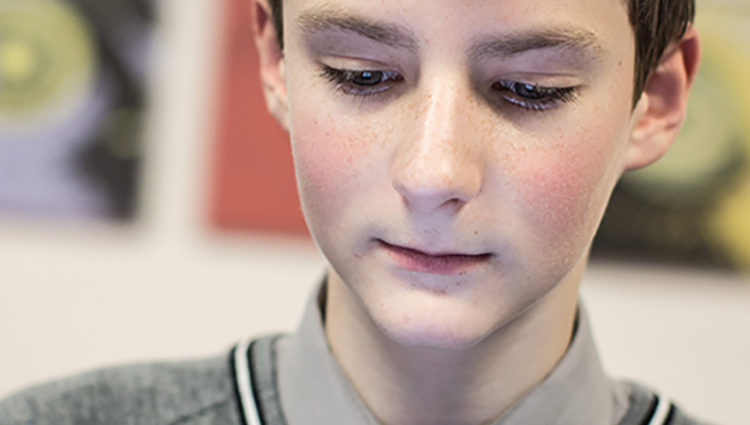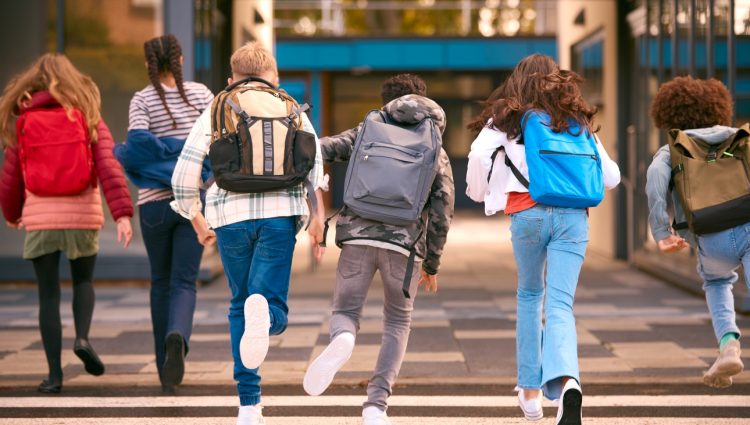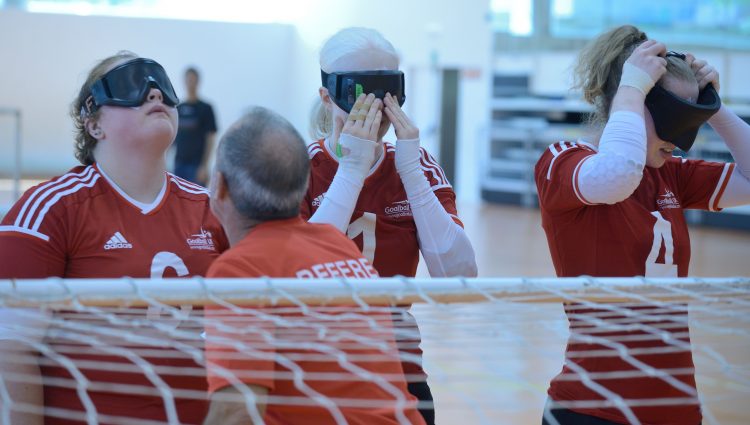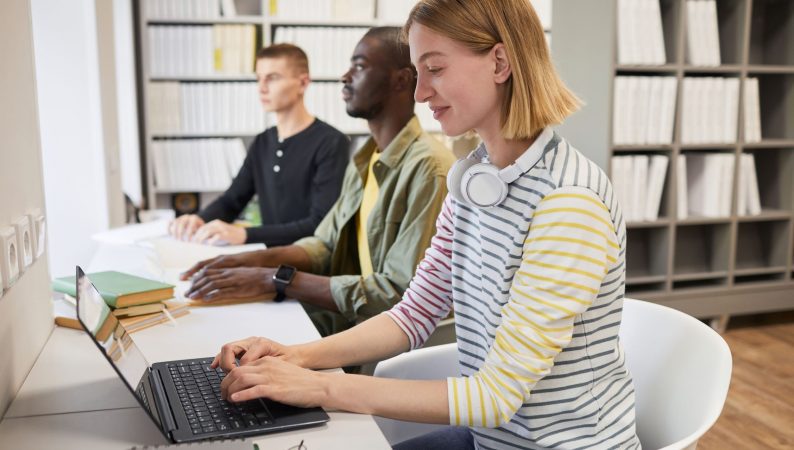Making friends is an important part of secondary school. Our Young Voices volunteers tell us “Friends are for life.” What does that mean? It means the friends you make and the skills you learn now can help you meet new people in the future.
Sometimes it might feel difficult making friends and meeting new people as a blind or partially sighted student. You might feel like the odd one out or that people will treat you differently. It’s ok to feel like this but no matter how you feel, you deserve to have the same opportunities as everyone else. This guide shows you ways of meeting new people and making friends in the way you want.
Telling other people about your vision impairment
Should you tell your friends or people you meet at secondary school about your vision impairment? You choose if you want to talk about your vision impairment and how you describe it. You could tell other students about your vision impairment if you would like help outside of the classroom. If you need help, you are in charge, tell others how you want to be helped.
It is ok to say no if you don’t need help or don’t want to talk about your vision impairment. Step Five of our Starting Secondary School guide, Tell People About Your Vision Impairment has tips on what you can do instead.
Finding new opportunities
Onto the big question, how do you make friends and meet new people at school? Our Young Voices Volunteers have some ideas for you:
- If you know someone from primary school who is going to the same secondary school as you, meet new people together.
- Who you sit with in your lessons is different for each class, so you will be with lots of different people from the start of school. When the time is right, talk with someone on your table.
- If someone sees you doing something you enjoy, like reading your favourite book or watching a funny video, outside of lessons they might want to talk with you about it.
- Lots of students, use their phones outside of lessons. If you want to use social media or share your music, check out our Make Your Smartphone/Tablet Accessible for Education guide.Stay safe online by reading VICTA’s ‘Online Safety’ webpage.
- Join a school club or sports team to meet people who like the same things as you. Find out how to make this accessible by using our Sports at Secondary School guide, or contact our Education Information Advice and Guidance Service!
- For other activities, our Young Voices Volunteers share what they enjoy doing to give you some ideas.
Accessible activities
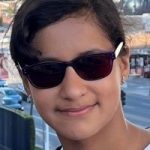
 “I enjoy swimming. I asked to be shown around the pool area to help me navigate. A float is put in at the end of the lane, so I know when I have reached the end” – Selvi, Young Voices volunteer.
“I enjoy swimming. I asked to be shown around the pool area to help me navigate. A float is put in at the end of the lane, so I know when I have reached the end” – Selvi, Young Voices volunteer.
“I play guitar and learn from a blind guitar teacher I found on social media. They use audio instructions, and I can use braille music. At home I practise and play by ear instead of reading music” – Sofia, Young Voices volunteer.
Read Sarah’s Story to hear about the healing power of music.
 “When I go to dance and martial arts classes, I take the bus. I ask the bus driver before I get on if it’s the right bus, and ask them to tell me when I get to my stop. Apps like Move It, show where busses are and when they arrive” – Samih, Young Voices Leader.
“When I go to dance and martial arts classes, I take the bus. I ask the bus driver before I get on if it’s the right bus, and ask them to tell me when I get to my stop. Apps like Move It, show where busses are and when they arrive” – Samih, Young Voices Leader.
When meeting new people doesn’t go right
When someone doesn’t want to be your friend or doesn’t understand your vision impairment, there can be lots of difficult feelings and it is normal to feel that way. Here are three things to remember if you find meeting new people difficult:
- When you find something difficult or someone is unkind, it is not your fault or the fault of your vision impairment. It is how someone chooses to act.
“If people are being unkind, you don’t need to be friends with them. Know you are worth having friends who like you for you” – Young Voices Volunteer.
2. You should be around people who want to be friends with you for who you are. You can choose to talk about your vision impairment in a positive way, like the skills it gives you, or not talk about it at all. It’s totally up to you.
“It can be hard if you think you’re different or stand out, but everyone is weird in their own way. Try and be confident and own your vision impairment because it makes you unique and special in the best kind of way” – Young Voices Volunteer.
3. There will be people to support you when you need it outside the classroom. You choose how much support you want from your support professionals when making friends or meeting new people.
Your feelings are important so do things which will make you feel your best. For help with the feelings you have about meeting new people, speak with a support professional at school or read Young Minds’ resource about feeling different from other people.
Find out more!
Our Education Information Advice and Guidance Service is here if you have any questions about making friends and meeting new people at secondary school. Please reach out to us by visiting our Education Information Advice and Guidance Service homepage.
Connect with other blind and partially sighted students and share tips on meeting new people in our online Student Support Community.
If you are struggling and need further support to connect with others, Look UK’s Schooled for Success mentoring scheme can match you with a mentor who has been through the journey of sight loss at school.
VICTA’s Student Portal is packed full of activities and days out where you can meet other blind and partially sighted young people and have some fun.

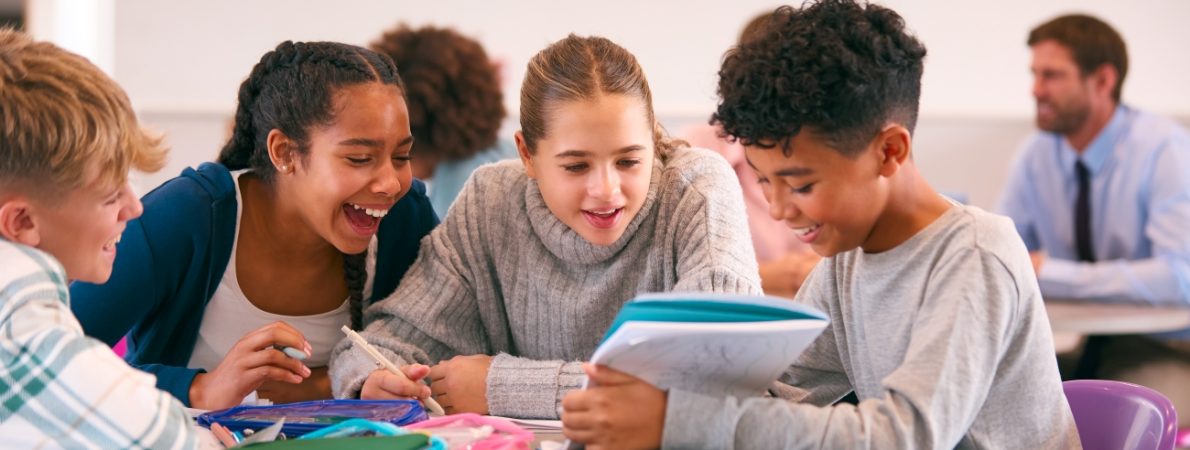

 “When I go to dance and martial arts classes, I take the bus. I ask the bus driver before I get on if it’s the right bus, and ask them to tell me when I get to my stop. Apps like
“When I go to dance and martial arts classes, I take the bus. I ask the bus driver before I get on if it’s the right bus, and ask them to tell me when I get to my stop. Apps like 